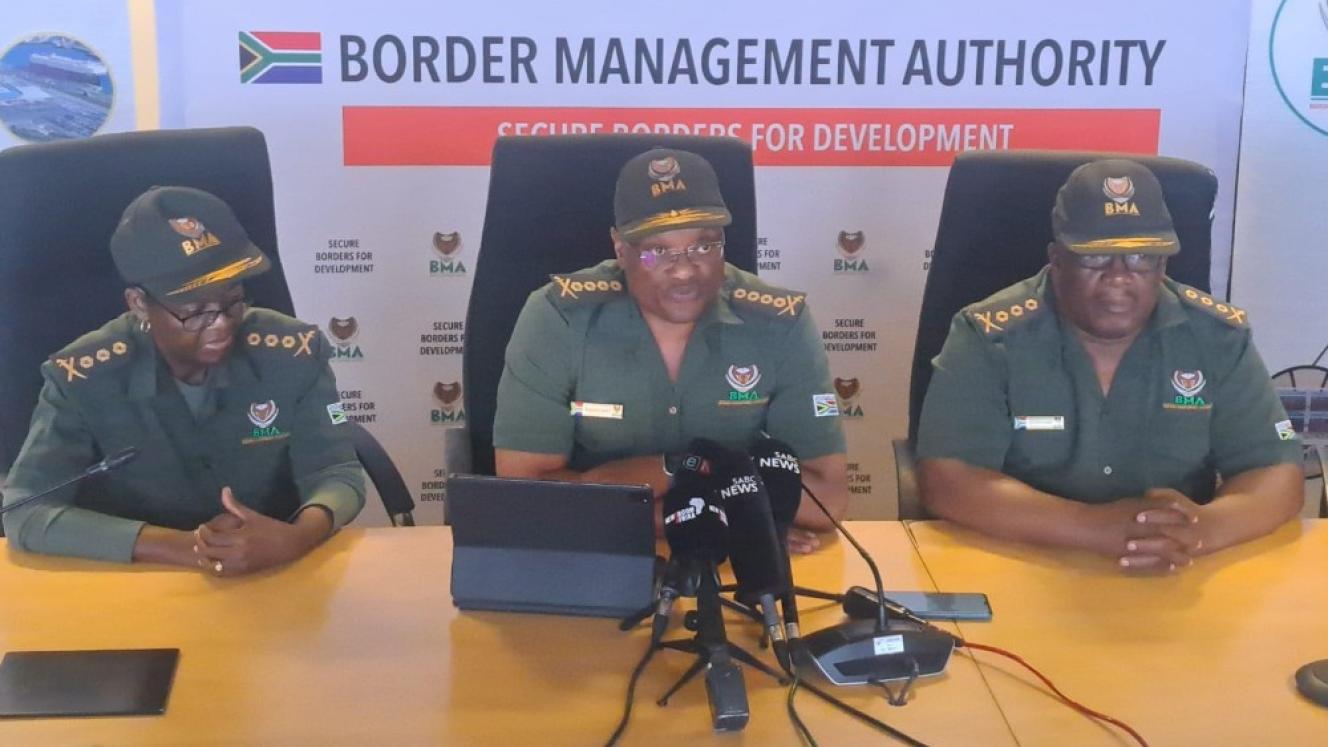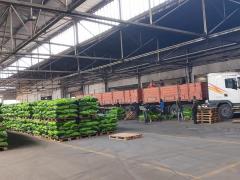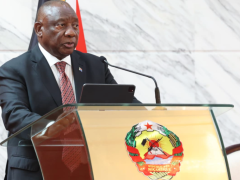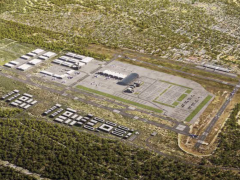The Border Management Authority (BMA) is operating at just 20% of its required staff complement yet it has achieved significant successes in securing the country’s borders and blocking illicit trade.
This is according to BMA commissioner Michael Masiapato, who outlined the authority’s plans to boost efficiency of its controls at the country’s land, air and sea ports, at the Port of Durban on Wednesday.
Currently, the organisation is functioning at 20% of its required staff complement, with 2 600 staff members against a structural requirement of 11 200 personnel, Masiapato said. Despite these limitations, the BMA had achieved notable interceptions, stopping 404 194 individuals attempting to enter the country and intercepting nearly 400 hijacked vehicles since it was formed 17 months ago.
"We do have around 600 border guards operating across 72 ports of entry. We're responsible for 4 220 kilometres of land borders and 3 900 kilometres of coastline, with just 50 coastal guards,” Masiapato said.
He said the authority had prioritised different entry points strategically. Land ports received initial focus due to significant challenges with illegal migration and cargo congestion, particularly at borders with Zimbabwe and Mozambique. Airports became the second priority, with efforts concentrated on creating partnerships to address capacity challenges and ensure smooth people movement.
Masiapato said the Port of Durban, handling approximately 4 500 ships annually, had emerged as a critical strategic location for its role in facilitating trade within the African Continental Free Trade Area (AfCTA) and supporting regional economic integration.
He said to address capacity shortages, the BMA was exploring innovative solutions.
"We have started engaging with the Durban University of Technology to get students to assist us through experiential learning and learnerships."
Addressing corruption remained a critical focus, he said, and the BMA had implemented multiple strategies, including:
• A vetting process for officials through the State Security Agency
• Introducing highly sophisticated security stamps to prevent passport fraud
• Establishing the Border Management and Immigration Anti-Corruption Forum
• Implementing a toll-free reporting number (080 122 9019)
Deputy Commissioner Jane Thupana said more than 20 employees had been dismissed for corrupt activities, emphasising the organisation's commitment to maintaining integrity.
Masiapato said technology formed a key component of the BMA's strategy. It was investing in AI-based drones and body cameras, particularly at high-risk land ports. These technologies aimed to monitor activities, detect illegal movements, and prevent corruption.
He said the authority was implementing advanced scanning technology to improve cargo processing and reduce congestion and was collaborating with the South African Revenue Service on the ‘Single Window’ project to automate port processes.
However, he said financial constraints remained a significant challenge. The BMA's capacitation budget for the medium term was initially projected at R2.9 million, although R250 million had been secured to date.
Masiapato said to address the financial and capacity challenges, the BMA had formed strategic partnerships with other law enforcement agencies, such as the South African Police Service and South African Defence Force, which were assisting with border reinforcement operations.
The organisation plans to escalate ongoing challenges to the Border Technical Committee of Directors General and the Inter-Ministerial Consultative Committee on Border Management, which includes ministers from various departments.
"Our ultimate objective is to process consignments as seamlessly as possible while ensuring the effective protection of the country's national security imperatives."
He said the authority was working towards its goal of creating an integrated, efficient border management system that balanced trade facilitation with national security requirements.
Established seven months ago as the third national armed law enforcement authority, the BMA operates across 71 ports of entry, including 52 land ports, 10 international airports, and nine seaports.













